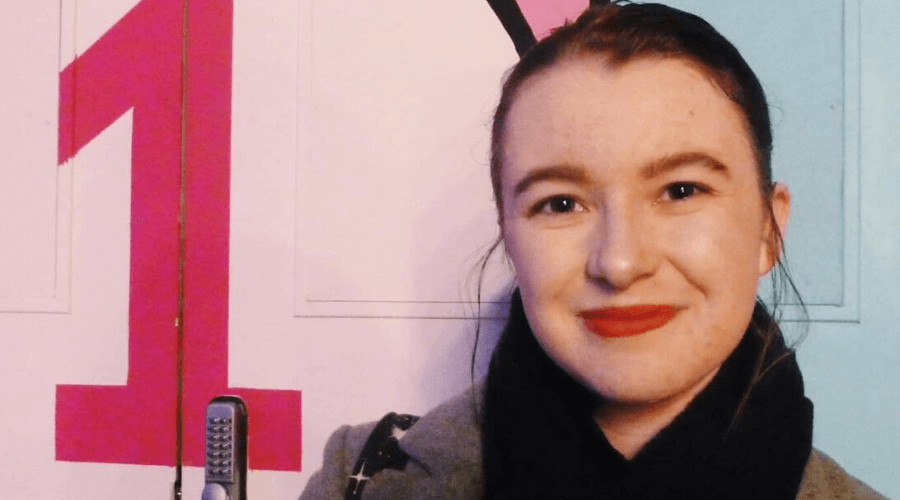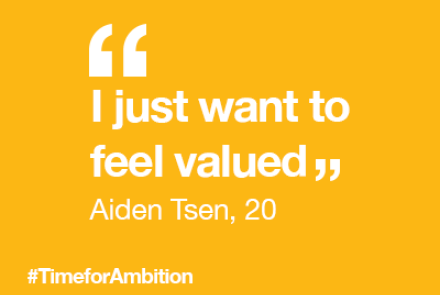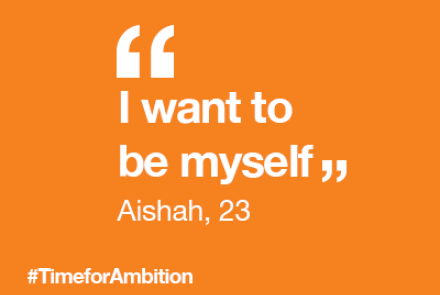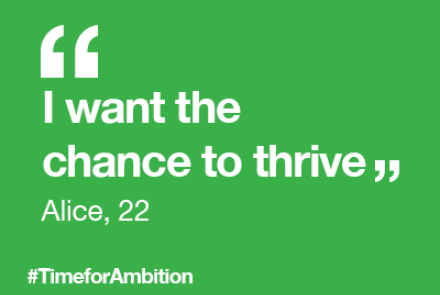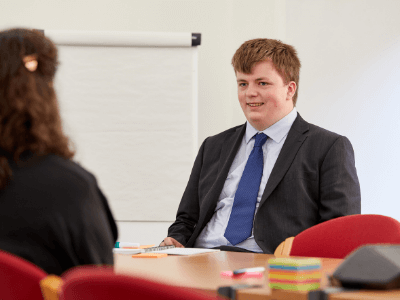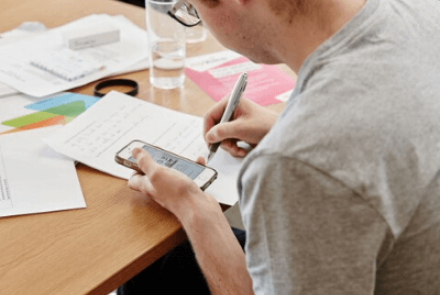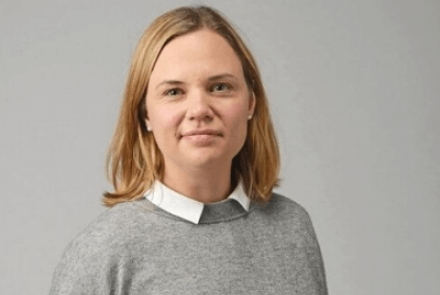Learning about lockdown from disabled people
Lockdown has changed the lives of so many people, completely upended normal existence. But now disabled people can use our voices to help those who might not be used to the struggles we face day to day.
For me, it’s been really insightful to see the ways in which isolation has helped and hindered me, and what parts of my life I can alter now that we begin to ease out of lockdown.
I’ve found that spending time indoors and taking up new hobbies like sewing, embroidery, and cross stitch have helped me immensely. Finding times when shops are quieter is something I’ll definitely be carrying through when ‘normal’ life returns, as is asserts my boundaries.
Currently, it seems more socially acceptable to insist on people adhering to your rules of what’s acceptable and what isn’t. Comments like ‘I can’t hug you’ or ‘you can’t come over today’, ‘I'll leave that DVD I said I’d lend you on the doorstep’ are totally acceptable in a way they often aren’t in neurotypical and abled society.
This is because most people who generally don’t have to think about their health now find it at the forefront of their mind. However, maybe this will make people more respectful of boundaries we set as disabled people in future. Illness is illness, right? Whether it’s a virus or a chronic condition, shouldn’t we let people decide for themselves what they’re well enough to do day to day?
Lockdown experiences
I’ve been speaking to some of my favourite disability bloggers about their lockdown experiences and reflecting on their thoughts.
Hannah from @notyourgrandmasuk on Instagram pointed out that now is a great time to practice “holding fear and grief at the same time and letting it flow through you rather than actively trying to distract.”
This is a great time for learning how to sit with uncomfortable feelings and emotions. For people with conditions like OCD, this is something that’s familiar. Sitting with discomfort is one of the key parts of therapy, as it helps to demonstrate that thoughts do not equal actions. Right now, many people may be feeling obsessive thoughts for the first time but learning to sit with these emotions and understand they are feelings rather than facts will help make this time easier.
Erin of @autoimmuneerin on Instagram put together a handy picture to help illustrate how lockdown can be eye-opening for people who haven’t experienced many aspects of disabled life.
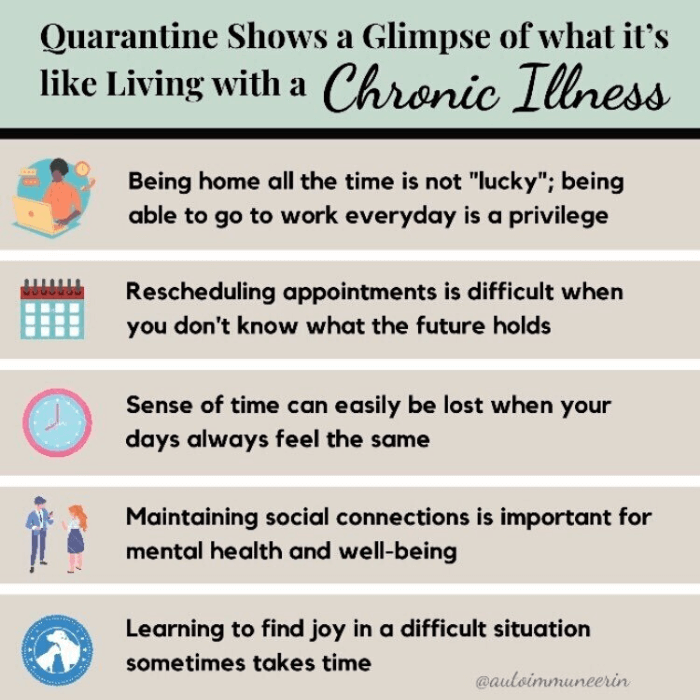
Erin, said: “Maintaining social connections at time is hard when you’re really not feeling good and don’t want others to see you sick.”
This is a difficult thing to do and as many disabilities come with co-morbid mental illness diagnoses. For some people, the extent of not wanting to be seen when you’re sick is not wanting your office crush to see your snotty nose when you have a cold, but for people with conditions like Crohn’s, IBS, or Ulcerative Colitis a bad day can mean having to spend the day close to a bathroom. Maybe, during this period, we’ll learn to be kind not only to ourselves but to others on bad days. This period is full of challenging times, and it never hurts to be kind.
Many of the harmful attitudes towards disability we often see in normal life are being challenged now. Whether it’s the idea that having to stay home is ‘lucky’, that social distancing is easy, or that living in fear of your health failing isn’t that hard, Coronavirus is changing all that.
One of my own personal favourite bloggers, Annika Victoria, shared with me that though she could often go out as ‘normal’ before this virus, she has a sibling who is housebound for most of the time, and the difference in how extended family members treat them now this is a ‘norm’ for everyone has been fascinating.
Learning from the disabled community
Arguably though, more than that, we’re learning that many of the things abled society told us wasn’t possible – classes couldn’t take place online, working from home wasn’t a viable alternative to office work, that events couldn’t be accessible via the Internet – are all being challenged. The world cannot go back to the way it once was now we know that it is perfectly possible to make the adjustments disabled people have been asking for over years!
Now is a perfect opportunity for learning from the disabled community, adopting techniques we've been honing for years. During isolation, it’s time to explore the many ways we can do that and maybe, on the other side of this quarantine, we will find a world in which disabled people are given a seat at the table.
About the author
Lauryn is a student at the University of Sheffield where she studies Literature. She is an award-winning autism advocate and enjoys using her experience of autism to approach problems in new or unexpected ways. When she isn’t at university, she can usually be found writing or sewing.

